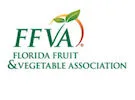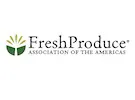The Florida Fruit & Vegetable Association and a group of Florida growers told U.S. trade officials that the state’s produce industry is in crisis and called for timely relief from the devastating effects of surging volumes of unfairly priced Mexican produce imports during Florida’s winter growing season.
FFVA President Mike Joyner asked for an investigation of Mexican trade practices under Section 301 of the Trade Act of 1974 “without delay.”
“Florida’s fresh-produce industry is in deep crisis,” he said. “It needs prompt USTR trade relief if our country hopes to continue feeding Americans domestically grown fruits and vegetables in the fall, winter and spring months. To save Florida’s produce industry, we respectfully urge USTR to launch an investigation of Mexican trade practices and policies.”
Producers of fresh fruits and vegetables also testified about the harm they have suffered from Mexico’s unfair trade practices over the past two decades. In addition, researchers from the Florida Department of Agriculture and Consumer Services and the University of Florida testified about their economic studies that show explosive growth in imports of Mexican fruit and vegetable crops to the U.S. since 2000.
Fresh Produce Association of the Americas response
The Fresh Produce Association of the Americas said in a statement: "Despite repeating the inflammatory phrases over and over, Florida and Georgia speakers did not present concrete, verifiable examples of their claims." In the statement, the Association shared that invoking Section 301 would "Increase grocery costs for Americans, and potentially instigate a trade war with Mexico just weeks after the historic USMCA took effect. Consumers would pay more for strawberries, blueberries, bell peppers, tomatoes, sweet corn and watermelon if tariffs or quotas are put on these items through a 301 trade action as requested today by the Florida Fruit & Vegetable Association."
FPAA further commented, saying: "Importations of fruits and vegetables from Mexico have not damaged the market prospects of the Florida and Georgia growers, despite the claims of Southeastern universities. As signatories to WTO, the U.S. and Mexico agreed not to surpass certain levels of agriculture subsidies, and, so far, both have honored that commitment. And, according to a recent University of Arizona analysis, since 1995, the U.S. has used up to 41% of its allowable subsidies, while Mexico has averaged just 2%. The analysis did not include the recent $28 billion in aid to U.S. farmers in light of ongoing U.S. trade tensions with major export markets including China, which could put the U.S. above WTO-allowed limits for trade subsidies."
 For more information:
For more information:
Lisa Lochridge
Florida Fruit & Vegetable Association
Tel: +1 (321) 214-5206
Email: lisa.lochridge@ffva.com
www.ffva.com
 Lance Jungmeyer
Lance Jungmeyer
Fresh Produce Association of the Americas
Email: lance@freshfrommexico.com
www.freshfrommexico.com
